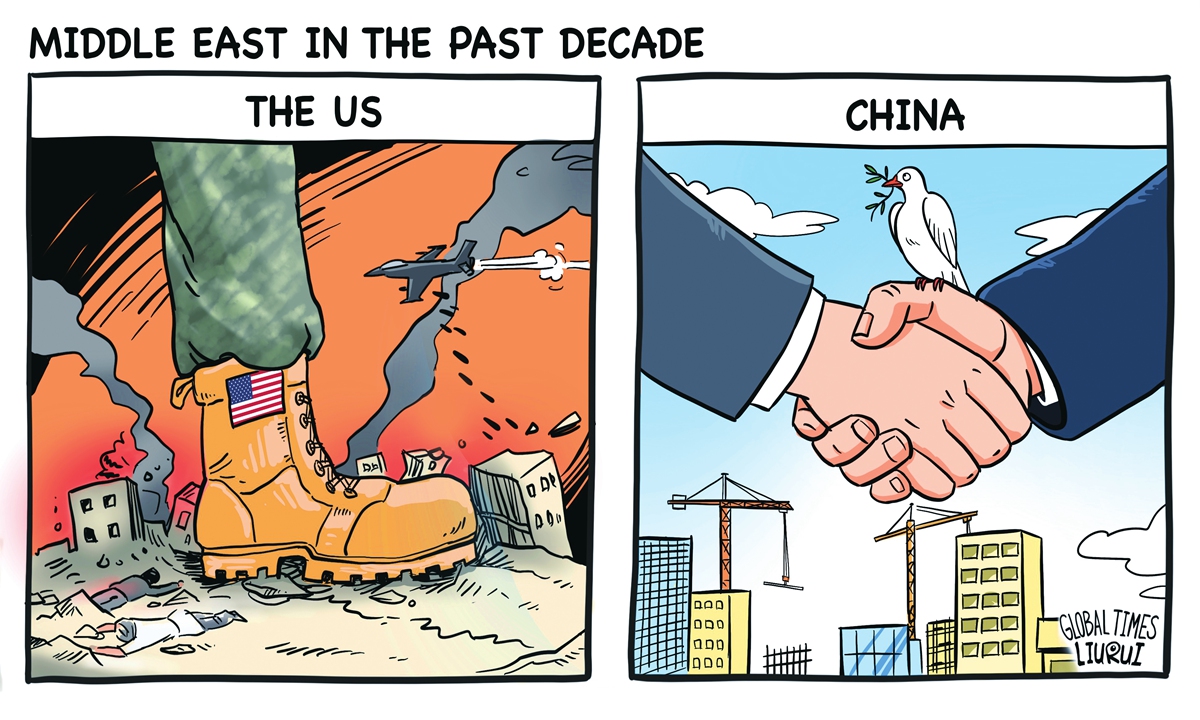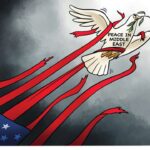Since the outbreak of a new round of fighting as part of the ongoing Israeli-Palestinian conflict, US officials have more than once called on China to exercise its influence in the Middle East to deescalate tensions. But when Hamas and Fatah representatives showed political will on the realization of reconciliation, it was the US who is unhappy to see China make progress in promoting unity and peace. This obvious self-contradiction is the latest example of the US’ selfishness and double standards in the international arena.
Actually, it is not by chance that China was able to facilitate the Fatah-Hamas talks. China has always been on the side of equity and justice in terms of the Middle East issue, which has won the recognition of multiple parties in this region. The fact that Fatah and Hamas seek for consultations mediated by China was exactly made possible by their trust in China.
At the same time, the US was also attempting to achieve a cease-fire deal on Monday by urging Hamas to accept Israel’s “extraordinarily generous” proposal for a Gaza truce, which was refuted by a senior Hamas official who responded that “the attack itself is a crime” and “stopping the attacks against Palestinians is not generous.” The US’ move is indeed further fueling the fire rather than cooling down the situation.
The US, under the guise of “pursuing peace,” is accustomed to dealing with international hot-spot issues in a biased and often brutal manner. However, China’s move in promoting peace and reconciliation contrasts sharply with the US’ strategy on the Middle East issue. The White House, with high ambitions but low levels of sense of responsibility, has made no effective breakthrough, but purely aggravated chaos in the region.
It can be seen that the US’ playbook hardly works, and it is not surprising that Washington has found itself in such an awkward situation. The US policy in the Middle East has become increasingly utilitarian, and fundamentally serves its strategy of great power rivalry, so that its moves bring little substantial improvement, but rather make intricate contradictions in the Middle East a deadlock. As a result, it is difficult for the US to maintain its authority in Middle East affairs, and it is caught into fatigue with limited fruits and descending influence.
“Instead of solving the problem, the US usually creates the problem, then formulates a policy based on its own interests and needs, taking the lives and wellbeing of the people in the Middle East as the tool to solidify its hegemony. All parties in the Middle East know the US’ intentions very well, but they didn’t have other choices before. Now with China’s mediation, they naturally will choose the proposal for peace,” Shen Yi, a professor at Fudan University, told the Global Times.
The key to peace in the Middle East is to take the right path, not to go astray or even backtrack. In March last year, Iran and Saudi Arabia restored diplomatic relations, a breakthrough achieved through China’s mediation.
The US has been worried about China filling the “power vacuum” it left behind in the Middle East, and has therefore continuously demonized China’s moves on related issues, and tried to offset China’s influence in the region by all means. Now, the reality has further proved China’s firm support and effective practice for regional countries to resolve hotspot issues through political means.
Moreover, China will not be a geopolitical player in the Middle East, the increasing influence of China is totally accumulated through goodwill and cooperation, without any machination. Such a partnership is a kind of transcendence and sublimation, and will certainly become more and more popular in the Middle East. It is also time for Washington to wake up and exercise restraint, and put the brakes on its radical policies in the Middle East.













